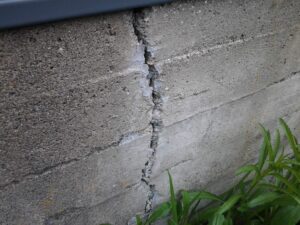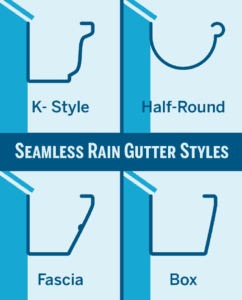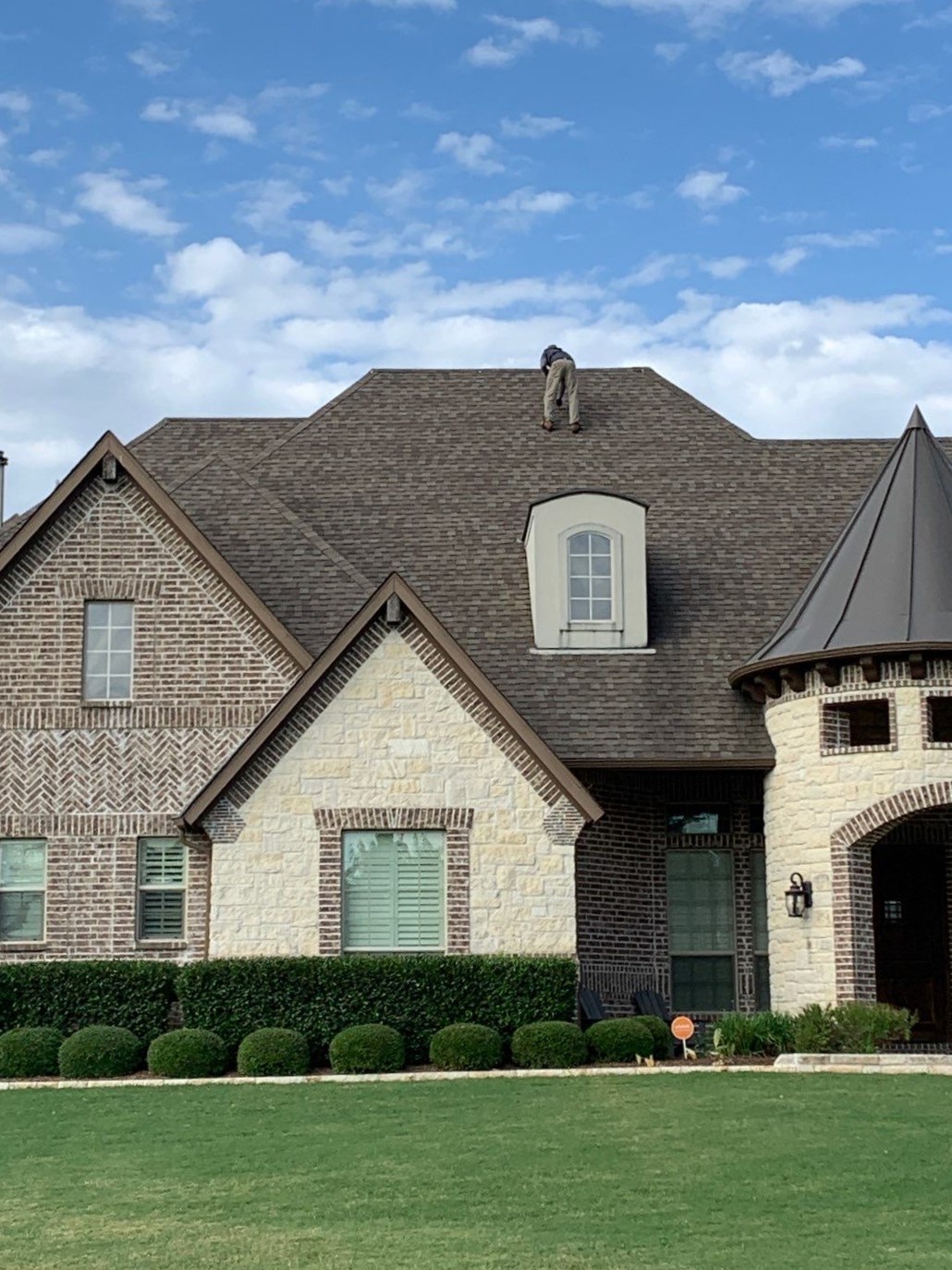Are Gutters Really Necessary? (In Most Cases, Yes.)
Depending on where you’ve lived and the type of home you’ve called your own, you might have seen a house without gutters—or with only partial ones. So that raises the question: if not every home has a full gutter system, are they truly necessary?
For most of our clients, the answer is yes. In this post, we’ll cover what gutters do for your home, the different styles available, and the types of environments where you might be able to skip them.
And don’t worry if your gutters aren’t in perfect shape or if they’re missing altogether, Roof Experts provides professional gutter installation and repairs.
What Gutters Do for Your Home
Gutters serve a straightforward but essential role: managing rainwater. By controlling the flow of water off your roof and away from your home, gutters help protect your foundation, landscaping, exterior finishes, and more.
Here’s how they work and why they matter:
Erosion Prevention
When it rains, water naturally runs off your roof and lands near the base of your home. Without gutters, this runoff can cause significant erosion around your property—washing away soil, creating uneven ground, and even undermining your landscaping. Gutters direct water to specific drainage areas, helping to maintain your yard’s stability and appearance.
Protecting Landscaping and Plants

Protect your new native plants!
If you’ve spent time designing a garden or planting shrubs near your home, you’ll want to keep them protected. Roof runoff can displace mulch, damage roots, and wash away soil. A proper gutter system can keep water from pouring directly onto your plants, helping your garden thrive and your landscaping stay intact.
Foundation Protection

Water pooling around your foundation is never a good thing. Over time, it can seep into cracks, expand them, and even compromise the structural integrity of your home. Gutters move rainwater away from the base of your house, reducing the risk of foundation issues and costly repairs.
Basement Flooding Prevention
A flooded basement can be a homeowner’s nightmare. When water seeps in through foundation walls, it can damage flooring, walls, and belongings—and invite mold. Gutters help prevent this by directing water away from the perimeter of your home, giving it less opportunity to collect near the foundation.
Preventing Staining and Exterior Damage
Without gutters, rainwater can flow directly down the sides of your house. Over time, this can lead to stains, peeling paint, rotting wood, or damaged masonry. Redirecting that water with gutters helps preserve your home’s exterior and reduces the need for frequent maintenance.
Reducing Mold and Mildew Growth
Water that lingers around your home’s foundation can make its way inside—especially in damp basements. This moisture can create ideal conditions for mold and mildew, which aren’t just unpleasant—they can impact indoor air quality and affect your health. A well-maintained gutter system helps reduce moisture buildup both outside and inside your home.
Types of Gutter Systems

Not all gutters look or function the same. If you’re considering installing or upgrading a system, here are a few common styles:
-
K-Style Gutters: Popular in residential homes, these have a decorative shape and handle high water volumes.
-
Half-Round Gutters: Often seen on historic or older homes, these offer a classic look and smooth water flow.
-
Box Gutters: Usually built into the roof structure, these are common on commercial or modern-style buildings.
-
Fascia Gutters: Attached directly to the fascia board, these offer a streamlined appearance and are custom-fit.
Gutters also come in a range of materials—aluminum, steel, vinyl, copper—each with its own pros and cons, depending on your budget and climate.
Are There Homes That Don’t Need Them?
In some cases, yes. While gutters are beneficial for most properties, there are exceptions:
-
Dry Climates: Homes in areas with minimal rainfall may not require full gutter systems.
-
Deep Roof Overhangs: If the roof directs water well away from the foundation, gutters might not be critical.
-
Hilly or Sloped Lots: Properties where water naturally drains away from the house may need fewer or no gutters.
Even in these cases, partial systems or targeted drainage solutions can still help protect specific areas, like entrances or gardens.
Final Thoughts
Gutters may not be the most noticeable part of your home, but they quietly play a big role in protecting it from water-related issues. Whether you’re maintaining an existing system or deciding if your home needs one, understanding the benefits can help you make the right choice.
If you’re unsure whether your home would benefit from gutters—or what type would work best—feel free to reach out. We’re happy to help you explore your options and keep your home protected from the elements.
Don’t forget to follow us on Instagram where we post ongoing projects, household tips and tricks, and general tomfoolery!
View this profile on Instagram


